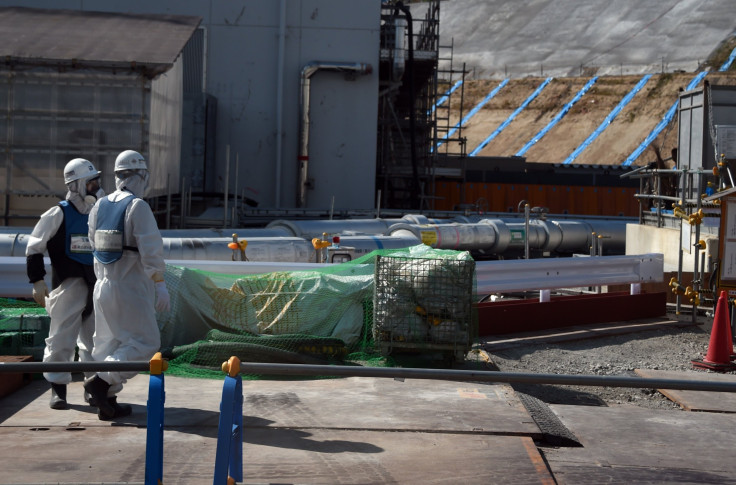Fukushima Nuclear Plant Cleanup Worker Diagnosed With Radiation-Related Cancer

A former worker involved in Japan’s Fukushima Daiichi nuclear plant cleanup efforts has been diagnosed with cancer related to radiation exposure, Japan’s NHK broadcaster reported Tuesday. This is the first case of cancer attributed to the nuclear plant cleanup.
The man, who was in his 30s at the time of the plant’s recovery project, was diagnosed with leukemia, according to NHK. The country’s health ministry approved his worker compensation, the report added.
“The case has met the criteria” for radiation-related cancer," an official with the health ministry said, according to Agence France-Presse.
In March 2011, an earthquake-triggered tsunami disabled the power supply and cooling mechanisms at the Fukushima Daiichi nuclear plant, causing a meltdown of three nuclear reactors and release of radioactive materials in the first three days.
The plant's operator, Tokyo Electric Power Company (TEPCO), said that over 44,000 people were involved in the cleanup work following the meltdown. The diagnosed worker, who was not identified, is now 41 and worked on cleanup efforts at reactors No.3 and No.4 from 2012 to 2013, the Washington Post reported citing Japanese daily Asahi Shimbun.
TEPCO gives monthly updates on the workers’ radiation exposure at the plant to the health ministry. According to the company, the radiation exposure dose limit at the plant site is 1.71 mSv per month, and in August, TEPCO stated that the average worker’s radiation exposure was at .31 mSv. However, the worker diagnosed with leukemia had accumulated exposed doses of 16 mSv, Asahi Shimbun reported, according to the Post.
“First signs of big trouble ahead for TEPCO as radiation exposure looks to be taking its toll on workers’ health,” Amir Anvarzadeh, Singapore-based global head of Japan equity sales at BGC Capital Partners Inc., told Bloomberg. “TEPCO could be facing huge lawsuits if and when radiation leaks are linked to health issues,” Anvarzadeh added.
In September, the Asahi Shimbun reported that a person living near the plant was diagnosed with thyroid cancer, bringing the total number of cases of the disease to 104 since the nuclear disaster. However, the prefectural government committee investigating health problems following the disaster said at the time that the thyroid cancer cases were not caused by the nuclear power plant accident.
© Copyright IBTimes 2024. All rights reserved.












